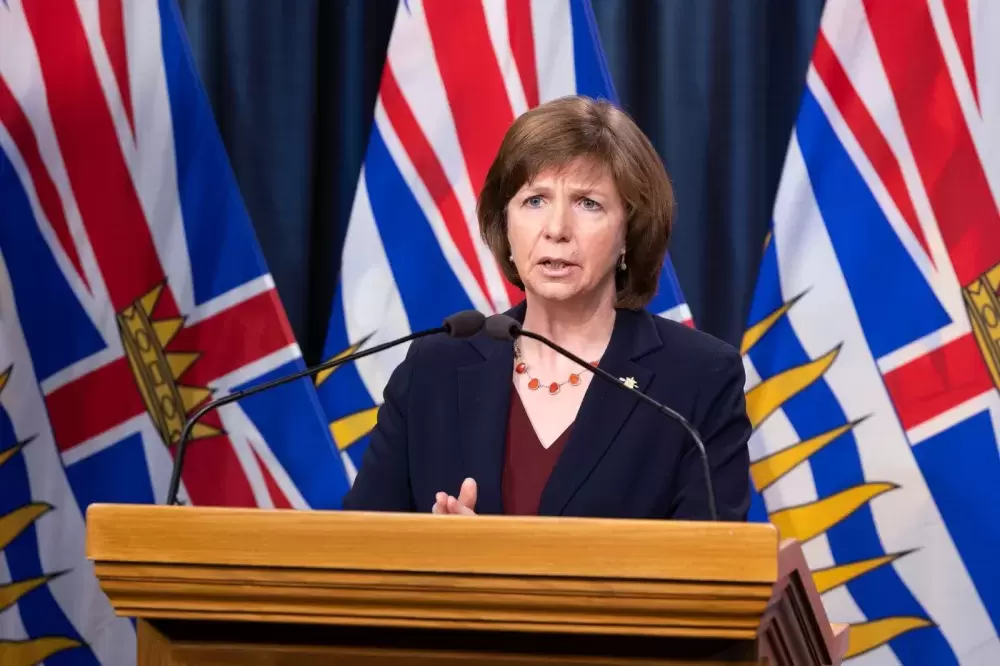As B.C. continues to struggle with an overdose crisis and its underlying contributing factors tied to mental health, the provincial government has announced a new focus on youth to “prevent small problems from turning into big ones.”
Minister of Mental Health and Addictions Sheila Malcolmson used those words on Dec.1, with the announcement of investing in young people through 33 new substance use programs and 130 additional healthcare workers to focus on substance use and mental health support. The additional healthcare workers include clinicians, social workers, harm-reduction personnel, nurses, outreach workers and Indigenous liaisons.
“We know that the earlier support is provided, the better the outcome,” noted Minister of Children and Family Development Mitzi Dean in a statement. “We know how important it is for youth to be able to get help when they need it, and this expansion of services and supports means that young people and their families will have increased access to vital substance-use care.”
Malcolmson spoke of challenges brought by the past few years, including the COVID-19 pandemic and the widely publicized confirmation of unmarked burials at residential school across western Canada.
“Every new challenge uproots young people’s lives, and it accelerates the increasing tide of demand for mental health and substance use services in British Columbia,” she said at a press conference announcing the new supports for youth.
British Columbia’s opioid crisis worsened with the onset of the COVID-19 pandemic, and the elevated death toll continues. The Coroners Service’s latest data shows 179 deaths by illicit drug use in October – nearly six fatalities per day in B.C.
First Nations have died by illicit drug use at a rate of 4.8 times larger than other B.C. residents, according to data from the First Nations Health Authority from the first half of 2021.
Currently Alberni-Clayoquot, which covers the Alberni Valley and Vancouver Island’s central west coast communities, ranks fourth in the province in the rate of death due to illicit drug use.
During the Dec.1 press conference it was noted that some young people struggling with drug addiction are reluctant to visit a hospital or clinic for help. The Youth Short Term Assessment and Response Team (YSTAR) was highlighted as a new service funded by the province to seek out and help youth before substance issues escalate. YSTAR teams are based in Campbell River, Nanaimo, Port Alberni, the Cowichan Valley and Mount Waddington.
Tenille Lindsay is the clinical coordinator for YSTAR’s team in Port Alberni.
“YSTAR is able to respond quickly, and go to where the youth are at. They don’t need to come to us, we go to them,” she said. “Our team has literally been in someone’s home, in their bedroom, or we’ve gone up to a treehouse to meet a youth.”

